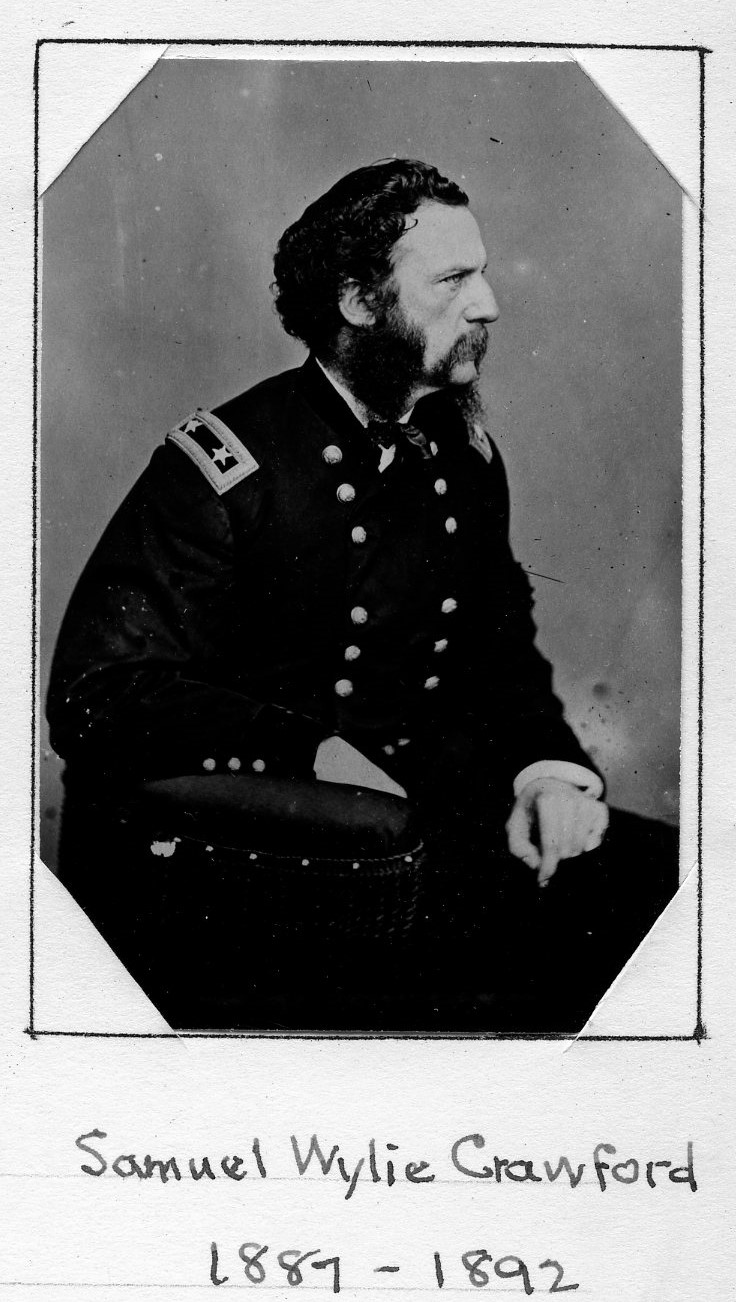Army Officer
Centurion, 1887–1892
Born 8 November 1829 in Franklin County, Pennsylvania
Died 3 November 1892 in Philadelphia, Pennsylvania
Buried Laurel Hill Cemetery , Philadelphia, Pennsylvania
, Philadelphia, Pennsylvania
Proposed by Quincy A. Gillmore, Robert G. Remsen, and Frederick Sheldon
Elected 2 April 1887 at age fifty-seven
Century Memorial
General Samuel Wylie Crawford was one of the heroes of Fort Sumter. It was his privilege, as a member of that famous garrison, to set an example of loyalty and devotion to his country’s flag, which brought hope and faith to the hearts of the friends of the Union, where doubt and despair, resulting from treachery in high places, had reigned before. This service would have been sufficient to render his name dear to his countrymen, but his subsequent career was no less honorable and meritorious. As a brigadier-general of volunteers, he fought at Winchester and Cedar Mountain, in the latter action losing half of his brigade. At the battle of Antietam he succeeded General Williams in command of his division, the latter assuming command of the corps when General Mansfield was killed. In this battle he was severely wounded. In command of the Pennsylvania reserves he fought with great distinction in the decisive action at Gettysburg, and for conspicuous gallantry in the battles of the Wilderness, Spottsylvania [sic], Five Forks, and all the various actions of the Army of the Potomac, receiving the stars of a major-general. He continued in the service as Colonel of the Sixteenth Infantry, and later of the Second Infantry, until February, 1873, when, owing to disability resulting from wounds, he was retired with the rank of brigadier-general in the regular army. He was a man of soldierly presence, of high character, a thorough-bred gentleman, and one to be proud of, as a typical American soldier. He valued his membership in this Club very highly, frequently communicating with its officers from abroad, where he resided on account of his health; but although separated from his native land, he had a right to feel that it was by reason of his devotion, and that of his brave comrades in arms, that he died a man with a country.
Henry E. Howland
1893 Century Association Yearbook

